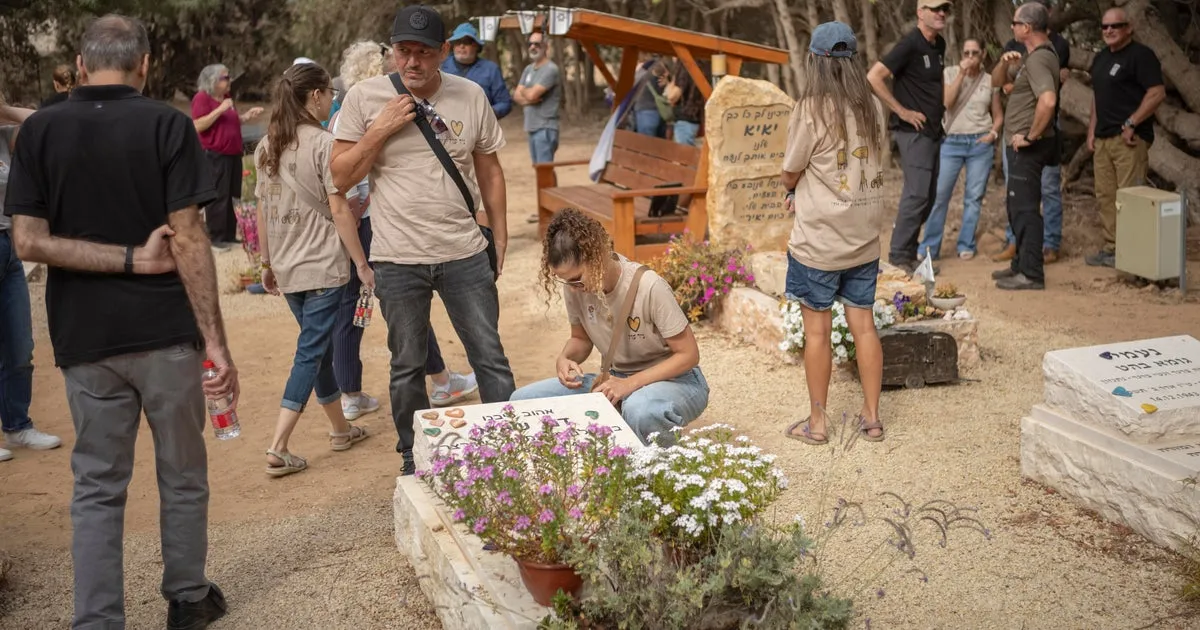
Jerusalem is witnessing a cautious wave of hope for a potential ceasefire aimed at ending the ongoing war in Gaza and facilitating the release of remaining hostages. On Monday, both Israel and Hamas prepared to engage in indirect negotiations in Egypt, signaling a possible shift towards peace.
The office of Israeli Prime Minister Benjamin Netanyahu announced that Israeli negotiators would travel to the Egyptian Red Sea resort of Sharm al-Sheikh to participate in the talks. These discussions are expected to focus on President Trump's 20-point plan for resolving the conflict in Gaza, which escalated following the Hamas-led terrorist attack on Israel on October 7, 2023.
During a recent press conference at the White House with Netanyahu, President Trump outlined his comprehensive plan. In a statement released on Friday, Hamas acknowledged its agreement to some essential elements of this proposal, including the release of all remaining hostages, both living and deceased, in exchange for Palestinian prisoners. Additionally, Hamas expressed willingness to transfer control of Gaza to a technocratic international body.
However, Hamas has yet to agree to other aspects of Trump's proposal, particularly those concerning its disarmament and its future political role within the Palestinian territories. Trump emphasized the urgency of these negotiations, calling for quick action and stating that ongoing discussions between Hamas and regional nations regarding the ceasefire proposal have been progressing rapidly.
On Monday, the Israeli Hostages Families Forum, representing the families of those still missing, sent a heartfelt letter to the Nobel Prize committee. They urged the committee to consider President Trump for the Nobel Peace Prize in recognition of his unwavering commitment and exceptional leadership in striving to secure the safe return of the remaining captives. The forum expressed its hope that Trump's plan could finally bring an end to their prolonged nightmare.
The talks commencing Monday are set to focus on establishing the necessary humanitarian and logistical conditions for executing a prisoner exchange deal between Israel and Hamas. According to Trump's proposal, this exchange would involve the release of 48 remaining Israeli hostages—approximately 20 of whom are believed to be alive—followed by hundreds of Palestinian prisoners held by Israel. This includes around 250 individuals serving life sentences and about 1,700 others detained after the October 7 attack.
Egypt's foreign ministry has highlighted that these discussions aim to address the procedural details aligned with Trump's plan, which seeks to end the war and alleviate the suffering experienced by the Palestinian people in Gaza.
As signs of a potential deal emerge, Israeli airstrikes in Gaza continued on Sunday, albeit at a reduced intensity compared to before Trump's proposal. The Israel Defense Forces (IDF) reported successful operations targeting a terrorist cell equipped with explosive devices intended for attacks against IDF troops near Gaza City. An Israeli government spokesperson noted that while certain bombings have ceased, no official ceasefire is currently in effect.
Secretary of State Marco Rubio commented on CBS News' Face the Nation that Israel's bombing campaign would need to halt for the release of the remaining hostages. Former Israeli Ambassador to the U.S., Alon Pinkas, expressed cautious optimism about the potential hostage and prisoner swap, stating that both sides are under pressure to reach an agreement. However, he conveyed skepticism about the broader aspects of the plan, suggesting that the likelihood of its success diminishes significantly.
At a recent event organized by the hostages' families, Ohad Ben Ami, a former hostage who was released in a previous prisoner swap, expressed his eagerness for a resolution. He shared his feelings of betrayal by the Israeli government but also acknowledged a newfound sense of hope. During his captivity, Ben Ami endured harsh conditions, a stark reminder of the ongoing plight faced by the remaining hostages. He articulated his continued emotional struggle, stating, "I'm a free man, but not in my soul." His poignant words resonate with the families and communities affected by this enduring conflict.